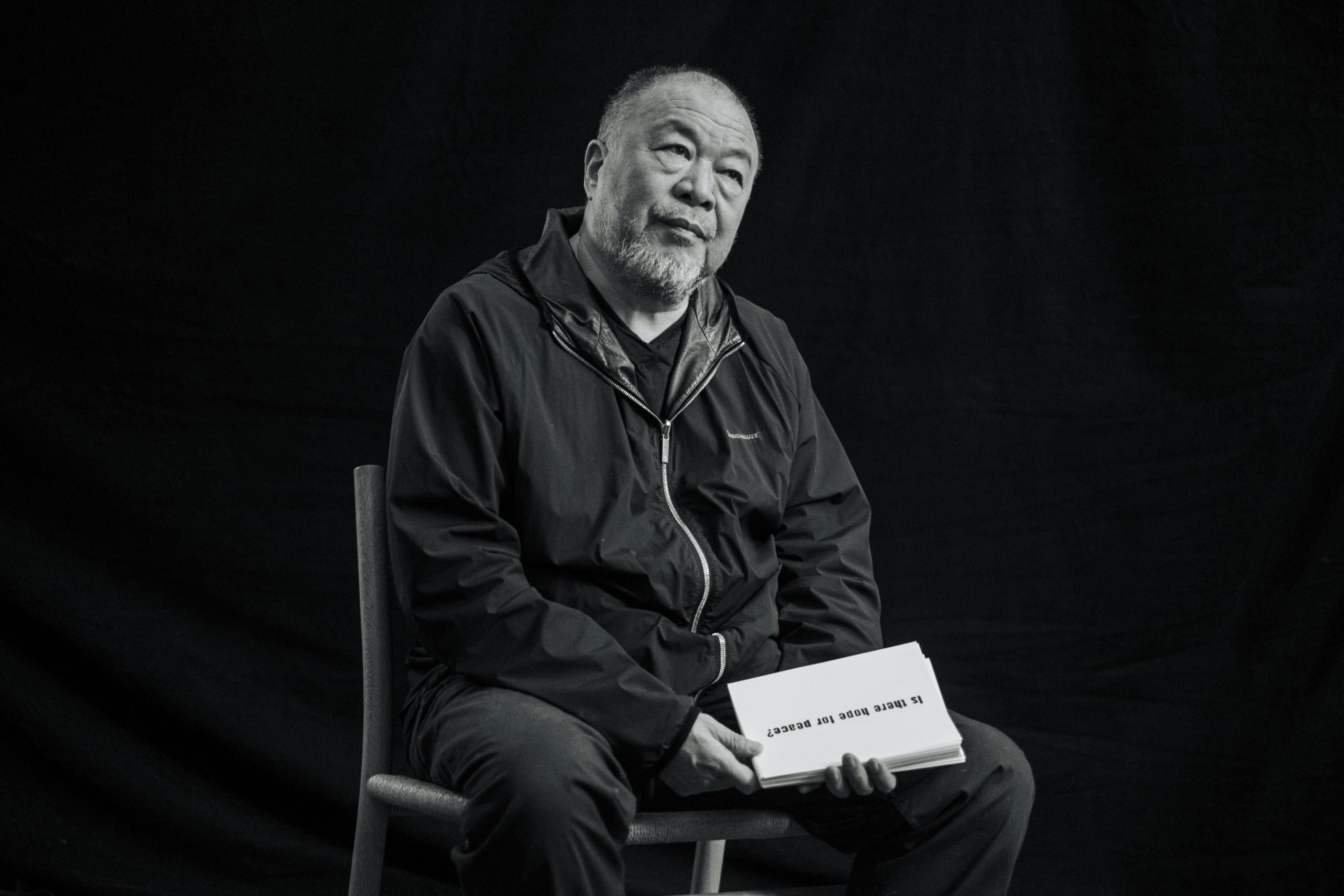
We’ve all become used to tapping any manner of information request into Google or ChatGPT and waiting just seconds to get our reply. Still, many of life’s bigger questions have no quick and easy answer. The Chinese artist and activist Ai Weiwei is embarking on what has been described as “an 81-day quest for enlightenment” through his latest work Ai vs AI. Every evening between now and March, he will pose mostly philosophical questions about subjects like humanity, science, and politics to an artificial intelligence.
Starting today, these questions, written by Ai and his close collaborators, will be publicly broadcast by CIRCA at 8.24 p.m. via London’s Piccadilly Lights and at several other international locations including Seoul, Berlin, and Milan. Ai plans to take a stab at answering these questions himself, and both his and the A.I.’s responses will be published online via CIRCA’s website and social media channels.
This is the first time that Ai has made an artwork using A.I., although the project ties into common themes from his traditional practice such as freedom, surveillance, and corruption, addressed by questions like: “Who profits when disinformation is sold?”, “Is true democracy possible?”, and “Are you controlled by the privileged class?”
Rendering of Ai Weiwei’s Ai vs A.I. on the Piccadilly Lights in London. Photo: © CIRCA.
The implication seems to be that, in an age of information overload, we must not shy from mulling over life’s more imponderable, divisive dilemmas that will inform the shape of our lives and societies. Other examples of Ai’s 81 questions include: “Is there a way to decolonize our minds?”, “Do human beings long for death?”, “Is polygamy or polyandry better?”, and “Can safety be built on the insecurity of others?”
The number 81 represents the number of days that the dissident artist spent imprisoned by the Chinese government in 2011, a time marked by unrelenting interrogation and yet no real freedom of speech. “Authorities always know more than you, and they play a game of not telling you what they know,” said Ai. “Everybody has the right to ask questions.”
In recent months, Ai has once again run into issues around freedom of expression after he posted a controversial take on the Israel-Hamas conflict on X: “The sense of guilt around the persecution of the Jewish people has been, at times, transferred to offset the Arab world. Financially, culturally, and in terms of media influence, the Jewish community has had a significant presence in the United States. The annual $3bn aid package to Israel has, for decades, been touted as one of the most valuable investments the United States has ever made. This partnership is often described as one of shared destiny.”
Behind the scenes of Ai vs A.I.. Photo: Leroy Boateng, courtesy of CIRCA.
The post was soon deleted and Lisson Gallery decided to put on indefinite hold an exhibition of new works by Ai that was originally going to open in November. Other shows planned in New York and Berlin were also called off. At the time, Ai told The Art Newspaper that Lisson had “good intentions” and that it wanted “to avoid further disputes and for my own wellbeing.” CIRCA chose not to comment on the X post or its decision to collaborate with Ai.
“A war is cruel in the sense that it destroys families, inflicts physical harm, and takes away innocent lives,” Ai Weiwei told Artnet News in October. “Censorship and the prohibition of thoughts are equally cruel if not crueler; it is a practice that hurts the soul of our society, a symbol of prevailing darkness, and it should be seen as a warning of a barbaric time.”
Since 2020, the Cultural Institute of Radical Contemporary Arts (CIRCA) has been using the Piccadilly Lights to broadcast new works of art by celebrated artists so that they can be enjoyed by passersby for free. Artists previously commissioned by CIRCA include Frank Bowling, Douglas Gordon, Caroline Walker, Anne Imhof, Laure Prouvost, Shirin Neshat, Marina Abramović, Yoko Ono, and Vivienne Westwood.
More Trending Stories:
Art Dealers Christina and Emmanuel Di Donna on Their Special Holiday Rituals
Stefanie Heinze Paints Richly Ambiguous Worlds. Collectors Are Obsessed
Inspector Schachter Uncovers Allegations Regarding the Latest Art World Scandal—And It’s a Doozy
Archaeologists Call Foul on the Purported Discovery of a 27,000-Year-Old Pyramid
The Sprawling Legal Dispute Between Yves Bouvier and Dmitry Rybolovlev Is Finally Over